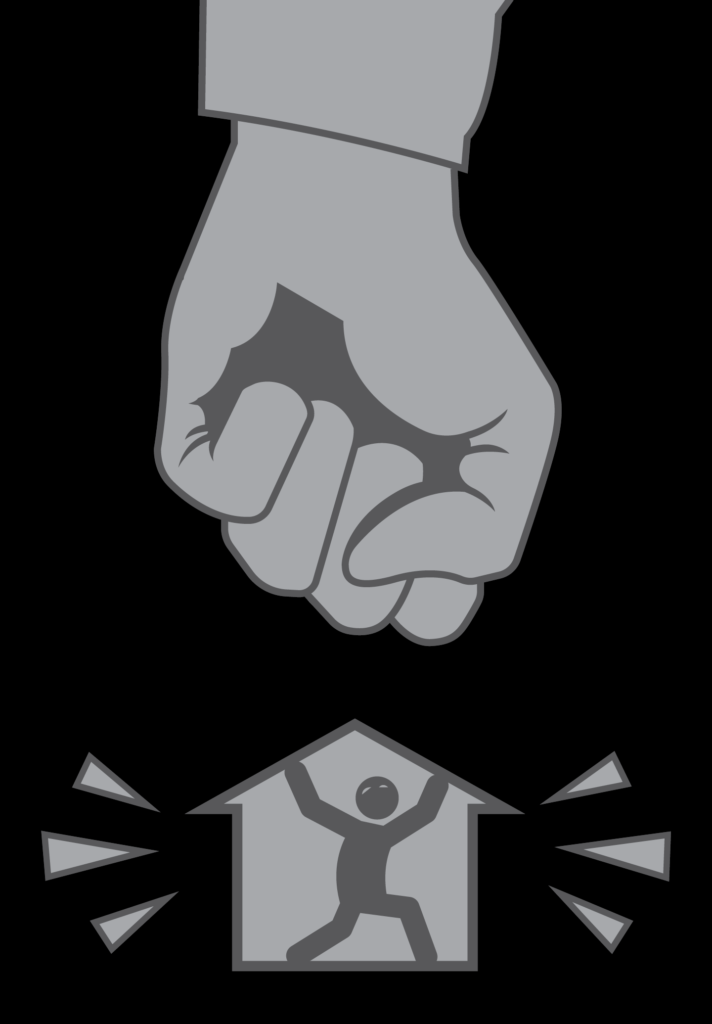Domestic violence is among the darkest of clouds over American society. Its damage is both mental and physical, and it can affect survivors for the rest of their lives. Millions are affected by it in the United States, yet domestic violence is rarely discussed because of its intensely depressing nature and the dark images it conjures in the minds of those who have been affected.
Domestic violence is a complex subject that requires a great deal of work to give one awareness about the subject. The extensive work that journalist Rachel Louise Snyder has done to delve into the subject from all possible angles has given her insight that commands attention.
Her knowledge on domestic violence has culminated in a book titled “No Visible Bruises,” where she came to Seattle’s Town Hall to discuss her book with fellow journalist Sydney Brownstone. Snyder has been very thorough in acquiring information from a wide range of sources, whose voices she hopes are magnified in her book in order to elucidate the intricacies of domestic violence.
A misconception with domestic violence cases that Snyder discussed was the fact that when victims recant their accusations, it does not always mean that the alleged abuser is innocent, nor that danger has ceased to exist.
“So often, when victims recant, it’s not because they’re not in danger anymore, it’s because of the fact that the danger has escalated,” Snyder. “They’re recanting because there are so many different ways that her abuser has shown her that he is more powerful than the system. He has shown her in his ability to bail out in hours or a day. He has shown her in his ability to skirt any real accountability for that violence.”
She also spoke of ineffective domestic violence policies in the United States, explaining that the system that determines the level of threat to a domestic violence victim or their level of credibility does not adequately address the issue.
“I do think that we need to have a better system in trying to determine which cases really are more dangerous, and which ones are, in fact, a very low level of danger,” Snyder said.
She discussed the role of law enforcement—an entity that she was rather critical of—in domestic violence cases.
“I think law enforcement needs better training on the nuances of domestic violence,” Snyder said.
Former Seattle police officer and current Criminal Justice professor at Seattle University, Al O’Brien, explained how the Seattle Police Department processes domestic violence cases.
“Domestic violence laws are intended to get a third party involved and separate the victim from the offender until the thing can be adjudicated so that you don’t have the people coming back together again,” he said.
O’Brien also explained that the police must determine a victim and perpetrator. That can often lead to negative consequences if there is little evidence in place or if the evidence does not tell the entire story, according to Snyder.
Snyder discussed a ride-along with police in Montana as they responded to a report of domestic violence. In this case, the woman was determined to be the perpetrator but as Snyder talked with the woman, she revealed evidence that she had not disclosed to the police, asserting that her husband was abusive as well. They were both arrested.
As complex as domestic violence is, it is equally as dark and disturbing and can cause great strain for those who report on it. Snyder talked about her struggles in reporting on domestic violence, which caused her to take a year off from her work. She even revealed that, in large part due to her reporting on issues like domestic violence, she was diagnosed with Vicarious Trauma, a condition similar to Post Traumatic Stress Disorder, but not necessarily with the same long term and pervasive effects.
Brownstone also discussed a similar struggle that she has encountered in her career.
“I couldn’t walk down the street without bursting into tears, and in reporting on rape and sexual violence, I mean, I was actually diagnosed with Acute Stress Disorder,” she said.
With all the work of journalists, social workers, law enforcement, and others to address the issue of domestic violence, Brownstone questioned if abusers can change for the better.
“Can a violent man learn to be nonviolent? What do you think?” Brownstone said.
Snyder expressed her hope for an improvement yet provided no definitive answer.
“I hope so,” Snyder said. “They have to want to. They have to see the benefit in it for them.”
Jack may be reached at
jderby@su-spectator.com








